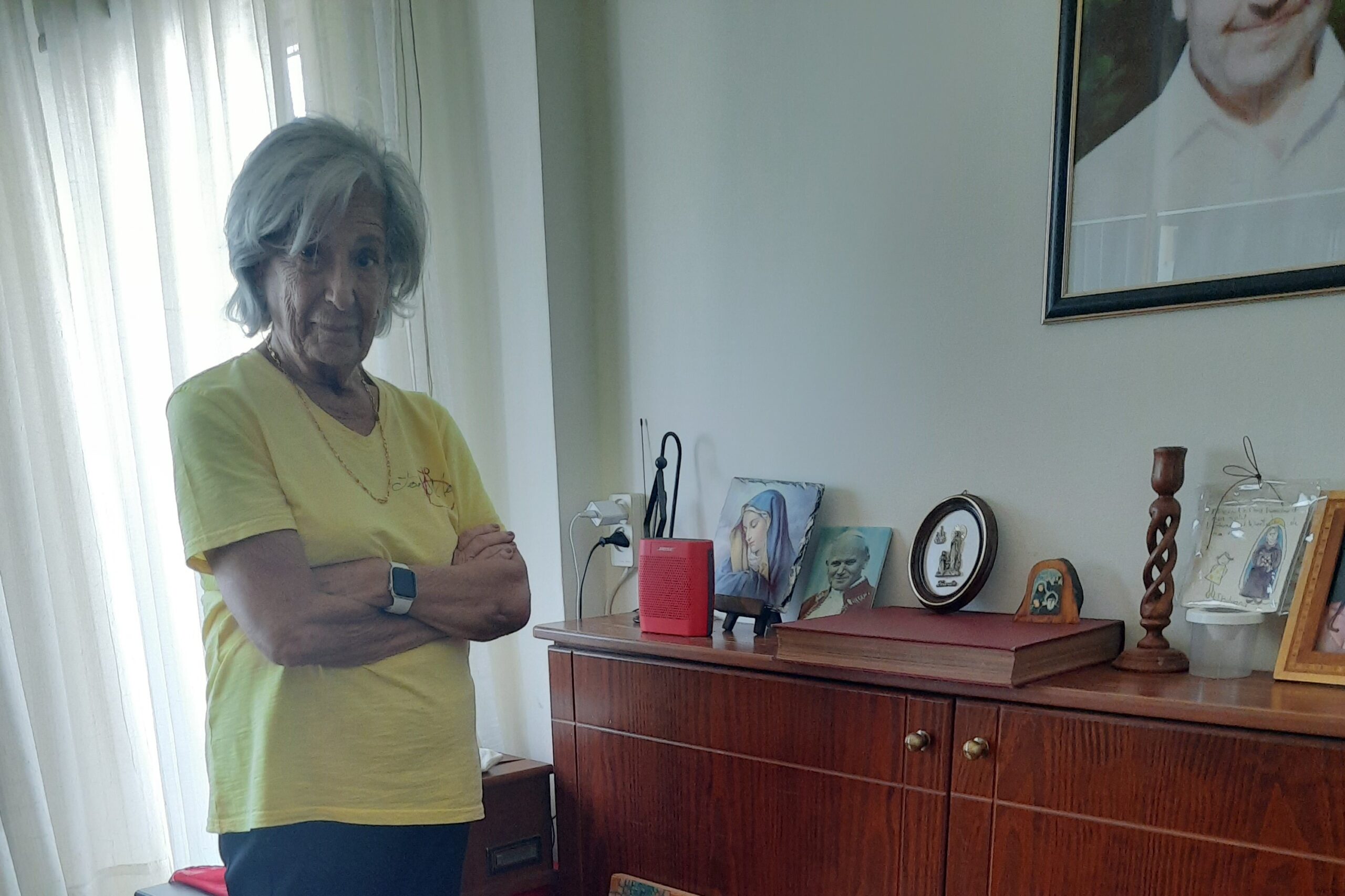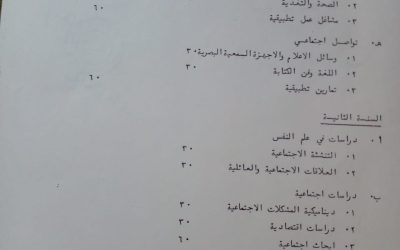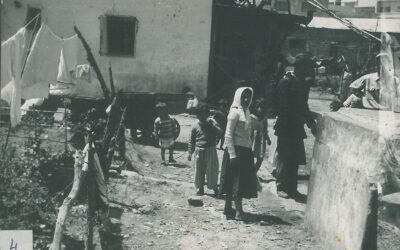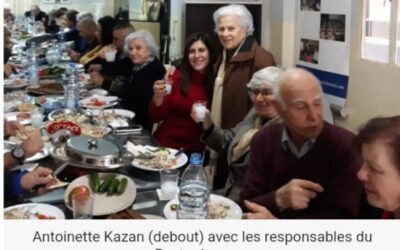One of the most important programs during the war was helping widowed mothers and their children within the family. In 1977, the French institution SALVE (Service d’aide au Liban pour veuves et enfants) sent an envoy to Lebanon to consider helping Lebanese orphans and their mothers in war conditions.
In 1978, the “Service de l’Enfant au Foyer” (SEF), an association serving the child and the mother within the family, was established with the contribution of social workers, Mrs. Marcelle Daou and Mrs. Claudette Nehme, who accompanied this project at its various stages, the starting point being the Maronite Diocese of Antelias. The SALVE project’s manager, Mrs. Thérèse Tawilé said: “The war has left a different reality that we didn’t expect. However, it created new initiatives that pushed us to adapt to the new circumstances.”
In 1980, SALVE signed an agreement with this association, and at the same period; an agreement was signed with Caritas Liban to carry out a similar project that lasted until 2005 with Mrs. Zeina Madi. In 1981, SALVE and the Hariri Foundation agreed to establish a center in Saida and then in 1985 in Chiah with the “Human Health Authority”. SALVE was then contacted by the “Directorate General of Social Affairs”, whose contribution at that time was limited to orphaned children’s care in institutions, to shape this project. In the context of cooperation between the Directorate General of Social Affairs and “The United Nations International Children’s Emergency Fund”- UNICEF, aiming to develop child care in Lebanon, it has been agreed to give priority to child care within his family rather than social institutions, as is customary in orphan cases and bad socio-economic conditions. The Directorate General of Social Affairs, which was known as the Social Welfare Department at that time, asked the “Ecole Libanaise de Formation Sociale” (ELFS-USJ) and “the Institute of Women’s Studies” at Beirut University College (BUC)” to rehabilitate human resources working in this field, particularly social workers at the Directorate General of Social Affairs and in Social Development Centers as well as in concerned civil bodies to serve better according to this methodology.
In 1985, it was decided to benefit from the “Grelac Fund”, which was named after an Austrian woman who donated to the Lebanese war orphans, and it was agreed to use this donation in a pilot project involving the child in his family. At that time, this project was planned to serve nearly 800 families, some of them through the social centers under the Directorate General of Social Affairs and others through non-governmental institutions. The project practically started working in 1986, under the name “Helping widowed mothers within the Family”.
Shifting from relief to development work was a pioneering experience. Through this project, many children were accompanied until they became adults and enrolled in universities thanks to the devotion and commitment of all the social workers there.
Regulatory, administrative, and technical frameworks were taken into consideration in designing this plan to maintain flexibility, freedom of practice, and decision-making by social workers, which had a positive impact on work development, as most social workers said.
This pilot program covered many levels, extending from financial aid, and essential family services such as health and education, to the vocational rehabilitation programs for mothers, supporting them in family management, planning for the future, empowering them to achieve their independence, re-engaging families in society and regaining their status among family, relatives, and friends. The average number of years to empower a family to self-reliance is not less than 5 to 6 years.
In 2015, the SEF adapted to the Lebanese reality, where the issue of orphans was no longer presented as it was before; the focus shifted to addressing the domestic violence issue, thus turning into a center for helping and sheltering abused women and their children. Mrs. Zeina Madi and Mrs. Marcelle Daou are still following the same professional rules and bases until today.
It is important to shed light on the important role those social workers played in shaping this project’s ideal vision since its beginning, following up and developing it to this day.




